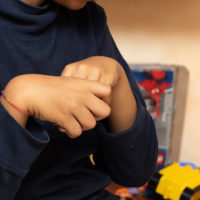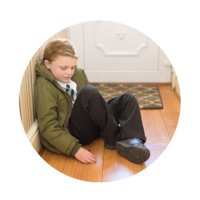Obsessive Compulsive Disorder (OCD)
-

A thinner cortex predicts a better response to CBT
Research on magnetic resonance imaging (MRI) to identify neural markers that might predict a child’s response to treatment for obsessive-compulsive disorder (OCD).
Read more -

Obsessive compulsive disorder symptoms predict anxiety, and vice versa
Researchers in London have studied the relationship between anxiety sensitivity (the tendency to fear anxiety symptoms) and obsessive–compulsive disorder (OCD) symptoms.
Read more -

Obsessive Compulsive Disorder (OCD)
OCD usually starts in early adolescence but is often not diagnosed until adulthood. We don’t know what causes OCD, but several factors are thought to play a part, such as biological, psychological, and environmental factors. We do know that OCD is a very treatable condition.
Read more -

Young people’s lived experience of Obsessive Compulsive Disorder
How do young people really experience living with Obsessive Compulsive Disorder (OCD)? What are young people’s understanding of their development of OCD and is there a link to trauma? How do other people’s reactions to the OCD affect the young people? How do young people really feel about the help for OCD in the United Kingdom?
Read more -

Cognitive flexibility in OCD: challenging the paradigm
Data from a new study by Nicole Wolff and colleagues suggest that cognitive flexibility can be better in children with obsessive-compulsive disorder (OCD) than typically developing controls.
Read more